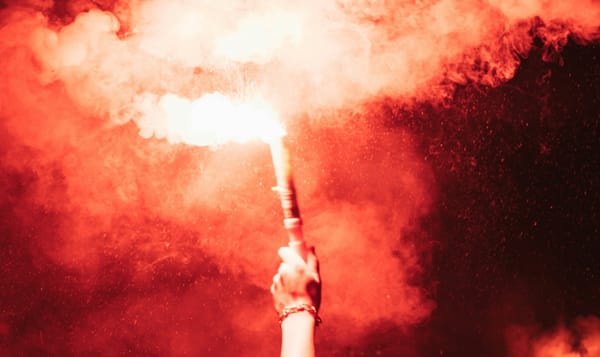visions of safety

Last year I joined a coalition of small-business owners whose members are LGBTQIA+. They recently advertised a forum on community safety. Safety is a high-priority topic in most major cities these days. Lots of people live in cities; local media loves covering things that scare people. The forum featured three guests, two of whom were police officers. The third was a city councilmember with a strong “law-and-order” record. That’s usually code for “we need more police,” and so it is here.
Organizers billed the event as a community conversation about safety. I wasn’t able to attend the event due to a scheduling conflict. But I question why the police were leading this conversation. I am also curious why an LGBTQIA+ coalition would choose to sponsor it.
when you’re a hammer…
The queer community has an extensive, often bloody, history with police. Many parts of the colonized world have made it illegal to be gay. Police often enforce laws designed to make queer people’s lives miserable. Police arrested the consenting adults who became the plaintiffs in Lawrence vs. Texas. They were the primary instigators at the Stonewall uprising. Stonewall itself only sparked after years of police harassing queer and trans people!
This isn’t ancient history, it’s not even in the past. States are lining up to pass bans on drag and any deviations from a strict gender binary. When those laws unfortunately pass, it is police who make the arrests. It’s police that people call when a cis woman wearing pants tries to use the women’s restroom. Police often say they can only enforce the law, but even this is untrue. Individual officers and the state itself has a selective view of justice. They apply it strictly and harshly against those who are often under attack by people in power. They look the other way when people in power break laws.
…everything looks like a nail
What can the police offer in a conversation about safety? A police officer can’t end homelessness. They can’t solve community food insecurity. Police budgets go up whether the crime rate goes up or down. Instead, police officers respond to most situations by escalating violence, not ending it. In Seattle, police kill more people than twice the national average. Put another way, a police officer in Seattle kills 1 out of every 10 people who die by homicide. These deaths rise even with federal oversight. They’re more likely to happen to people who are Black, queer, trans, poor, or houseless. Imagine leading a conversation on safety when you’re 10% of the reason why the community is unsafe.
Why do we allow one group of people to dictate this twisted vision of safety? Why do most cities only have one solution when people feel unsafe? People with power use the police to terrorize. They feel safe in the assumption that they’ll never be the target.
my vision of true safety
Who deserves to feel safe? We are all members of a society, even when we can’t afford to live in that society. Our vision of safety must include the people around us, too. What does safety look like, say, to LGBTQIA+ residents of a city? It’s not hard to imagine:
- A clean place to live in a city they know
- Freedom from harassment and crime
- Protection from violence, including gun violence
- The ability to live in ways that don’t cause harm to anyone else
- Protection of property*
*I’m not very concerned about that last one, to be honest. I know it’s important to some people but it’s often used as an justification of murder. There is not a single person in the world who is worth less than property. That’s not a difficult choice to make!
How else could we use the money that we award to police? We could shelter queer kids whose parents kick them out of the home. We could open more parks, pools, and city-funded third places for people to be in. We could fund more health clinics, invest in artists, lower rent costs. We could preserve forests, hire social workers and crisis specialists, improve mass transit. Each of these issues would improve the safety and wellbeing of millions of people.
A corrupt police force is more than a bushel of bad apples. It’s a well-funded line of obstacles that separate us from the future we deserve. There is no doubt we need more conversations about community safety. Let’s talk about what really keeps us safe; what receives millions of dollars and may not even show up. We need to talk about how armed vigilantes have never been on our side.
This is true year-round, but especially during pride month: cops don’t protect us. We protect us. Don’t forget that.



